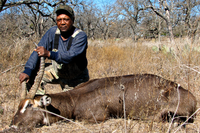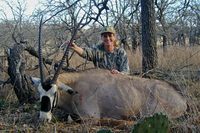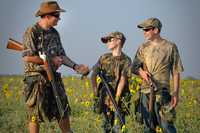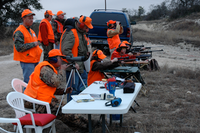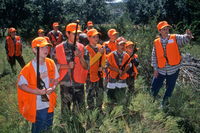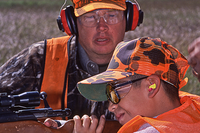Six Stages of Hunter Development
The longer you hunt; you will probably find that your attitude and behavior will evolve. There are six distinct stages of hunter development. You may not pass through each of these stages and you may not progress through them in this exact order.
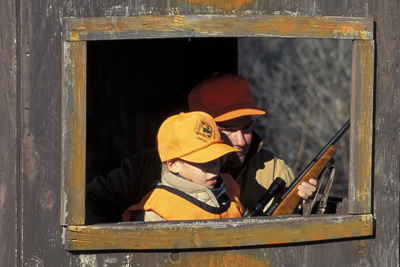
1) Shooting Stage
The impulse here is to get off a shot quickly, usually at the first animal that appears. This eagerness can lead to bad decisions:
- the wrong animal being chosen,
- a poor shot being taken that wounds the animal or
- even a shot that endangers others.
Target practice, good mentoring and more experience will lead most hunters out of this stage quickly.
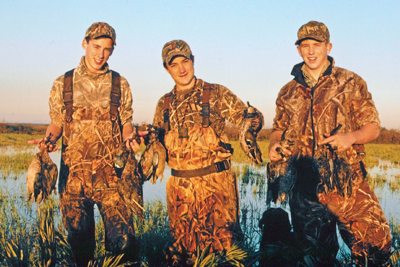
2) Limiting Out Stage
This hunter wants to always bag the limit. This may cause a hunter to take unsafe shots or misidentify targets in the zeal to limit out. More experience and hunting with mature hunters will lead hunters out of this stage.
3) Trophy Stage
Success is judged by quality, not quantity. The hunter is very selective and will pass on many opportunities that do not match the desired trophy characteristics. Many trophy hunters focus on big game. The hunter’s patience and commitment must be highly evolved.
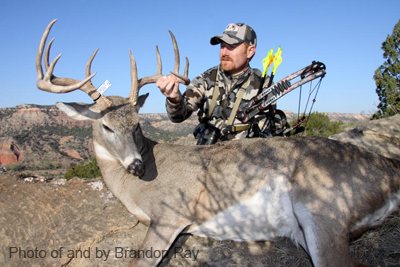
4) Method Stage
Here, the process and challenge of hunting becomes the primary focus of the hunter. A more challenging method, such as using a bow, muzzleloader, or handgun may be chosen. The hunter may choose to stalk or still hunt, rather than sit in a stand next to a feeder.
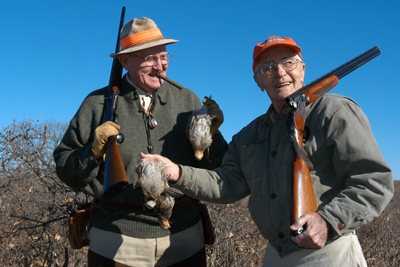
5) Sportsman Stage
The total experience of the hunt is what is important to the sportsman:
- What animal is being hunted,
- How it is being hunted,
- The immersion into nature and the companionship of who you are hunting with,
- all combine into creating a more sophisticated appreciation of the hunt.
6) “Give-Back” Stage
At this point the hunter is motivated by the desire to pass on the proper hunting values, safety skills and responsible attitudes to others. They want to preserve our hunting heritage by introducing new hunters to the sport in the most rewarding manner. The hunter may choose to join a conservation organization that improves habitat through wildlife management and promotes hunting.
Some become a volunteer Hunter Education Instructor.
or volunteer in the Texas Youth Hunting Program.
or volunteer in the Texas Brigades.
